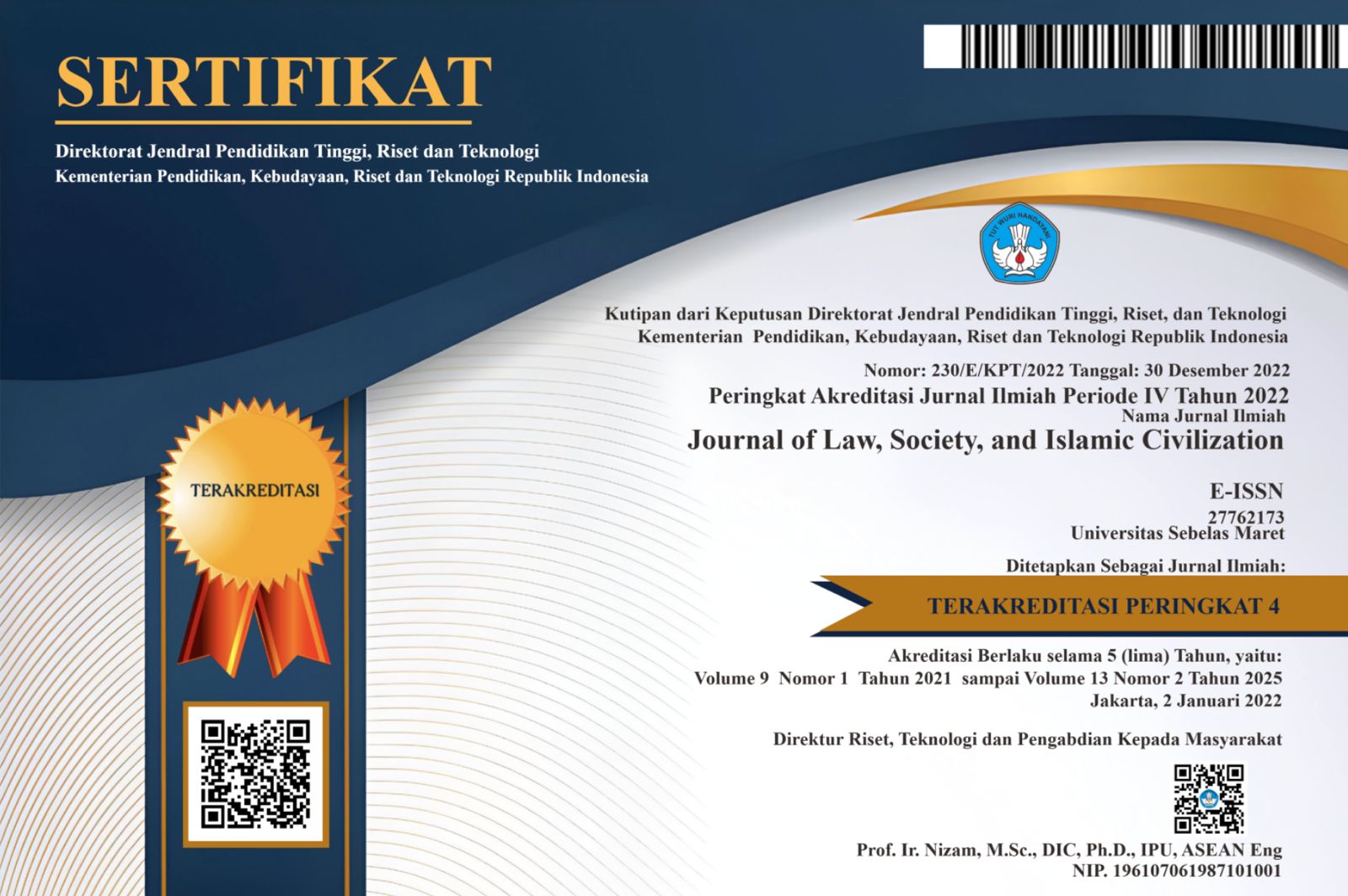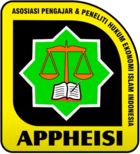Implementasi Hak Keistimewaan Yogyakarta dalam Pengelolaan & Pemanfaatan Tanah Pelungguh dan Tanah Pengarem-Arem
Abstract
This research aims to identify problems and find solutions in the Implementation of Land Rights in the Field of Land Management and Utilization, as outlined in the Special Region of Yogyakarta Governor Regulation Number 34 of 2017 regarding the use of village land, especially in relation to Pelungguh land and Pengarem-arem land from the perspective of customary law. This research uses an empirical and descriptive research method with a qualitative approach. The types and sources of data used in this research are primary and secondary data. Data collection techniques used in the research include field studies and literature reviews, with data analysis using a qualitative method employing inductive reasoning. Based on the results of the research that has been carried out, it can be concluded that the implementation of Privilege Rights in the Land sector in the use of village land, especially Pelungguh land and Pengarem-arem land in Yogyakarta, has resulted in problems related to social injustice, maladministration, and incompatibility of Village Regulations with Governor Regulation No. 34 of 2017. The complexity of legal recognition has ultimately been simplified to create a meeting point between the law in the community and the positive law in effect, renewed to effectively address the issues at hand. This problem can be overcome by conducting an in-depth study to reformulate sub-district regulations by regulating the division of Pelungguh land and Pengarem-arem land.
Keywords
Full Text:
PDFReferences
Cakratama, K. S. (2009). Sejarah Keraton Ngayogyakarta Hadiningrat. Narasi: Yogyakarta.
Koentjaraningrat, K. J. (1984). Kebudayaan Jawa. Jakarta: Balai Pustaka.
Marsudi. (2014). Kearifan Lokal dalam Pemanfaatan Sultanaat Ground di Kecamatan Gamping Kabupaten Sleman. Jurnal Spirit Publik, 9(1), 51-76.
Munsyarif. (2013). Menuju Kepastian Hukum Atas Tanah Kasultanan dan Pakualaman di Daerah Istimewa Yogyakarta. Yogyakarta: Ombak.
Murray Li, T. (2020). Epilogue: customary land rights and politics, 25 years on. The Asia Pacific Journal of Anthropology, 21(1), 77-84.
Prihantoro, T. (2016). Integrasi DIY ke dalam Wilayah RI Tahun 1945-1950. Jurnal Risalah, Vol. 2(7), 81-91.
Samosir, D. (2013). Hukum Adat Indonesia. Medan: CV. Nuansa Aulia.
Simarmata, R. (2018). Pendekatan Positivistik dalam Studi Hukum Adat. Mimbar Hukum-Fakultas Hukum Universitas Gadjah Mada, 30(3), 463-487.
Sukisno. (2014). Pengelolahan Tanah Kasultanan (Sultan Grond) Setelah Berlakunya Undang-Undang Nomor 13 Tahun 2012 Tentang Keistimewaan Daerah Istimewa Yogyakarta. Tesis, Program Magister Kenotariatan, Universitas Gadjah Mada.
Suteki, G. T. (2020). Metodologi Penelitian Hukum (Filsafat, Teori dan Praktik). Depok: Rajagrafindo Persada.
Ter Haar, B., & Nugroho, B. D. (2011). Asas-asas dan Tatanan Hukum Adat. Bandung: Mandar Maju.
Tontowi, J. (2001). Budaya Lokal dan Otonomi Daerah dalam Kaitannya dengan Keistimewaan Yogyakarta. Jurnal Millah, 1(1), 1-21.
Wignjosoebroto, S., & Hukum, P. (2002). Metode dan Dinamika Masalahnya. Jakarta: Elsam HuMa.
Zakaria, R. Y. (2016). Strategi pengakuan dan perlindungan hak-hak masyarakat (hukum) adat: sebuah pendekatan sosio-antropologis. BHUMI: Jurnal Agraria dan Pertanahan, 2(2), 133-150.Refbacks
- There are currently no refbacks.












